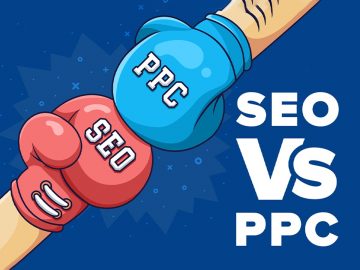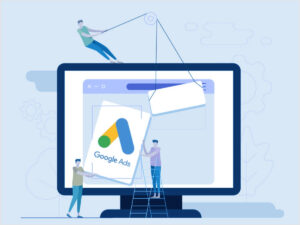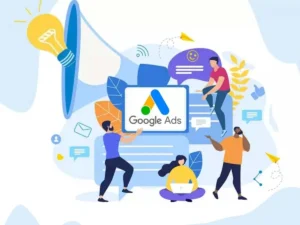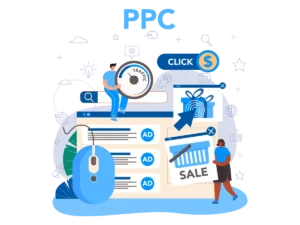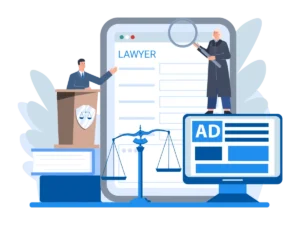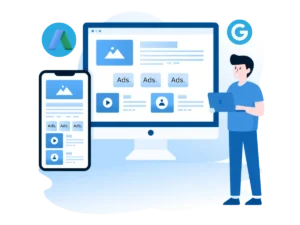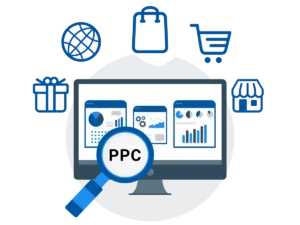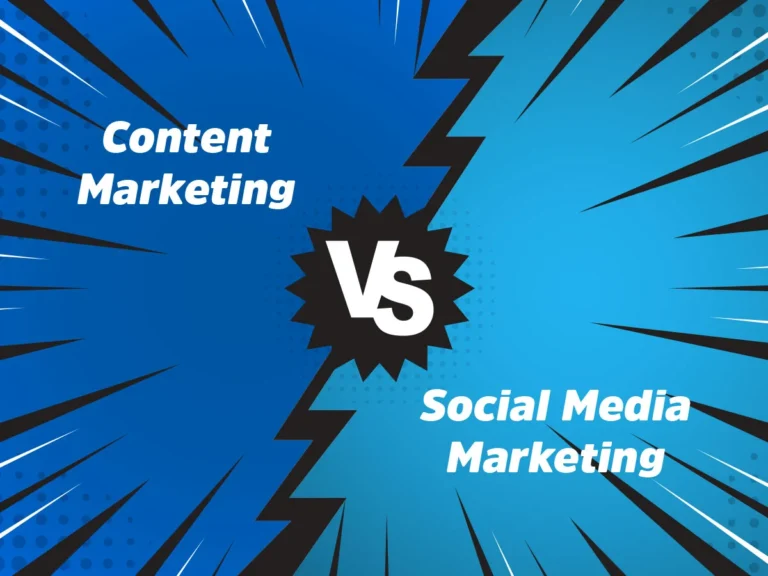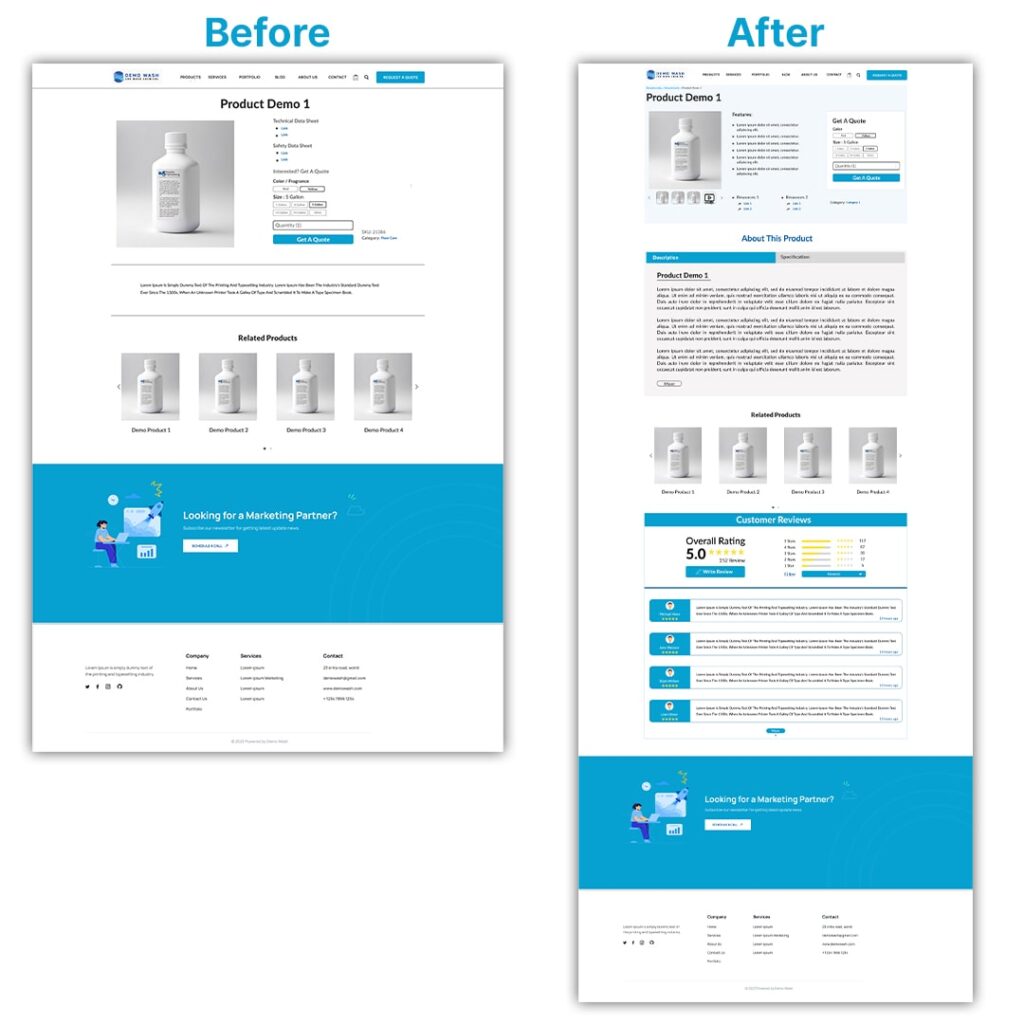Do you find yourself pondering whether to invest in pay-per-click (PPC) advertising or focus on search engine optimization (SEO) to boost your website’s ranking? To be more precise, how is Ranking Different When Comparing PPC vs SEO?
Is one better than the other, or do they work best in tandem? These are the top burning questions we are about to tackle in this blog.
So, whether you are a digital marketing enthusiast or a business owner striving for online success, make sure to take some time in hand to read the blog. As, by the end, you will be the profitable one, having all the insights that can transform your business.
Without further ado, let’s get started:
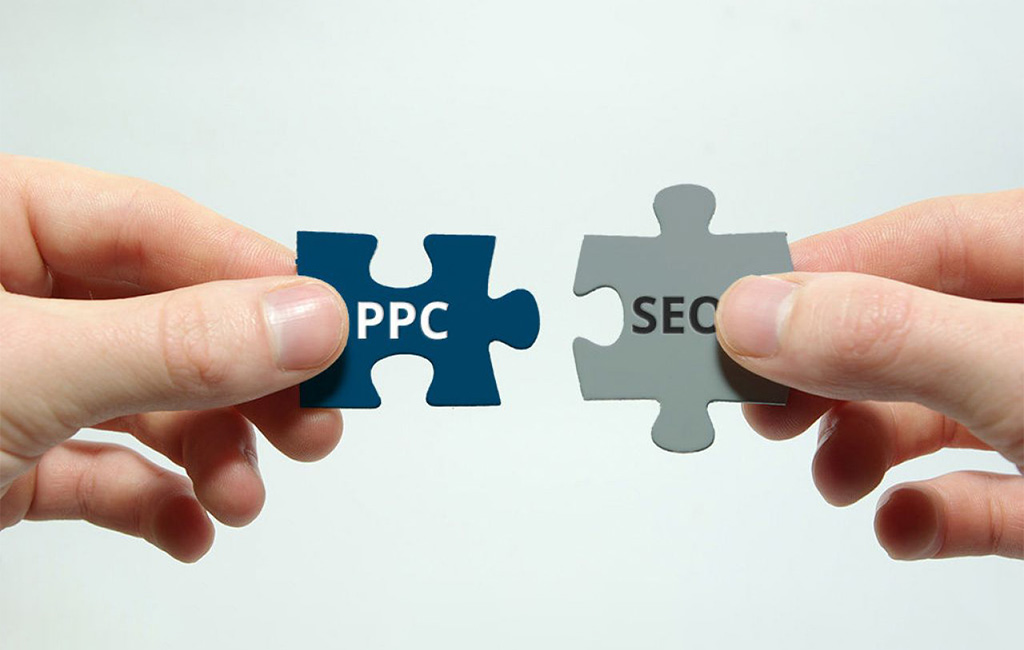
Benefits of SEO & PPC
Here are some of the exciting benefits that SEO & PPC brings to the table:
SEO, The Power of Organic Awesomeness
- Organic Traffic Boost: SEO helps your website climb the ranks on search engine results pages (SERPs), bringing in users who are actively looking for what you offer.
- Credibility and Trust: Have you ever wondered why you trust the first few results on Google? Well, SEO plays a big role in building that trust. Because when your website appears at the top, it signals to users that you are a reputable source.
- Long-Term Game: SEO is like a fine wine; it gets better with time. The efforts you put into optimizing your site can provide enduring results, steadily increasing your online presence.
- Cost-Effectiveness: Unlike PPC, SEO doesn’t demand a toll booth every time someone clicks on your link. Once your site is optimized, organic traffic comes rolling in without the constant need to open your wallet.
- User Experience Enhancement: SEO isn’t just about keywords; it’s about creating a user-friendly experience. A well-optimized site is more likely to keep visitors engaged, reducing bounce rates and increasing the chances of conversion.
PPC, Skyrocketing Your Visibility With a Dash of Precision
- Instant Gratification: Want to be on the first page of Google by the end of the day? With paid ads, you can jump to the front of the line and bask in the glory of immediate visibility.
- Targeted Advertising: PPC allows you to be incredibly specific about who sees your ads. You can target by location, demographics, interests, and even the devices people are using.
- Measurable Results: You can track clicks, impressions, conversions, and more in real time. This not only helps you understand your ROI but also fine-tune your strategy on the fly.
- No need to break the bank: With PPC, you decide how much you want to spend. Whether you have a modest budget or want to go big, PPC allows for flexibility and control over your spending.
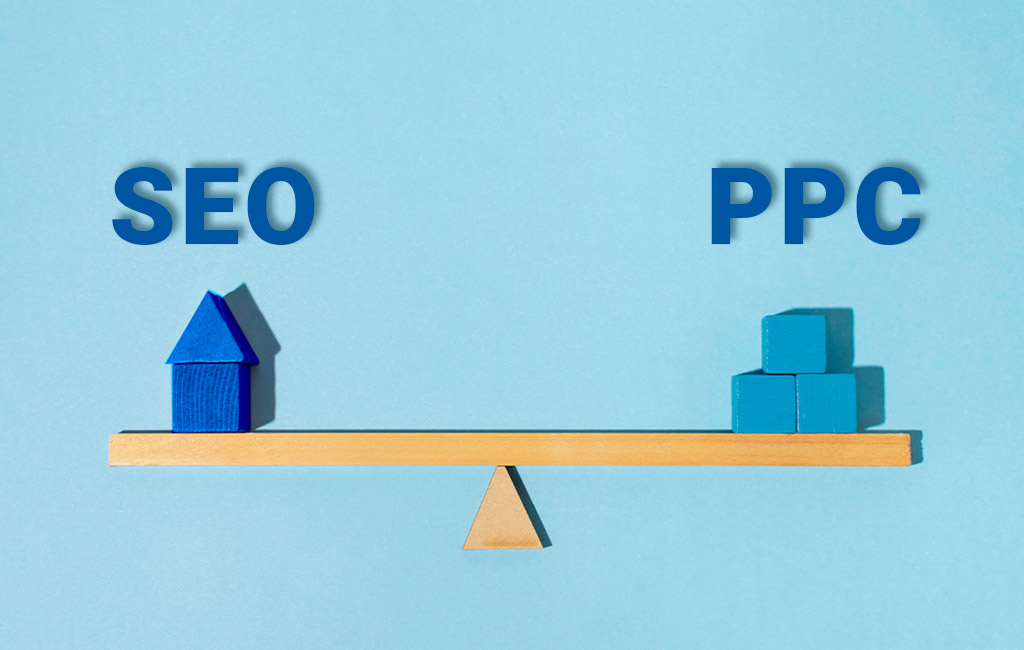
Difference Between SEO and PPC Ranking Factors?
SEO (Search Engine Optimization) and PPC (Pay-Per-Click) are two dynamic duos in the world of digital marketing, each with its own set of superpowers when it comes to ranking factors. Some of the major differences between them are as follows:
Cost Structure
SEO is like the long-term investment in your website’s popularity. It involves optimizing your content, improving site structure, and building quality backlinks. The cost is more of an upfront investment in time and resources.
On the flip side, PPC is like the stock market of digital marketing. You bid on keywords, and the cost is more immediate. It’s like buying stocks – you pay for each click, and the more competitive the keyword, the higher the cost.
Position on SERPs
SEO is the tortoise in the race. That is, your position on the SERPs (Search Engine Results Pages) is earned through quality content, user experience, and relevance. SEO is about building authority over time, which leads to a more stable and long-lasting presence.
PPC, on the other hand, is the hare – quick and immediate. You bid for a top spot, and if your bid is the highest, you are right at the top.
Visibility Duration
SEO is like the evergreen content of digital marketing. Once you have climbed up the search ranks, your visibility is more consistent. People find you organically, and your content remains visible as long as it’s relevant and valuable.
In contrast, PPC is like a temporary billboard. You are highly visible while you are actively running your campaign, but the moment you pause or stop, that visibility drops. It’s effective for specific promotions or events, but the impact is more short-term.
Credibility and Trust
SEO is all about earning Google’s trust by consistently providing valuable, reliable content. The more trustworthy your site appears, the higher it climbs on the search engine ladder.
On the flip side, your credibility in PPC is somewhat instant. Users click on your ad based on the persuasive power of your message. However, building long-term trust requires more than a captivating ad; it’s about delivering on promises and providing a positive experience once the user lands on your page.
Traffic Quality
SEO aims to bring together your content and the right audience organically, based on relevance. So the users who are genuinely interested can find you. Ultimately, leading to longer stays on your site and a lower bounce rate.
On the other hand, PPC gets you immediate attention, but the quality of that attention depends on your targeting. If your keywords are well-chosen, you attract an audience genuinely interested in what you offer. However, if your keywords are too broad, you might get clicks from users who were expecting something else, leading to a higher bounce rate.
Keyword Selection
SEO is the detective searching for the right clues. Keyword selection in SEO involves understanding what your audience is searching for and optimizing your content accordingly.
PPC is the auction house where keywords are like prized artifacts. You bid on keywords, and the highest bidder gets the spotlight. Choosing the right keywords in PPC is crucial; it’s like picking the right items to bid on in an auction. Go too broad, and you might attract the wrong crowd; go too narrow, and you might miss out on potential clicks.
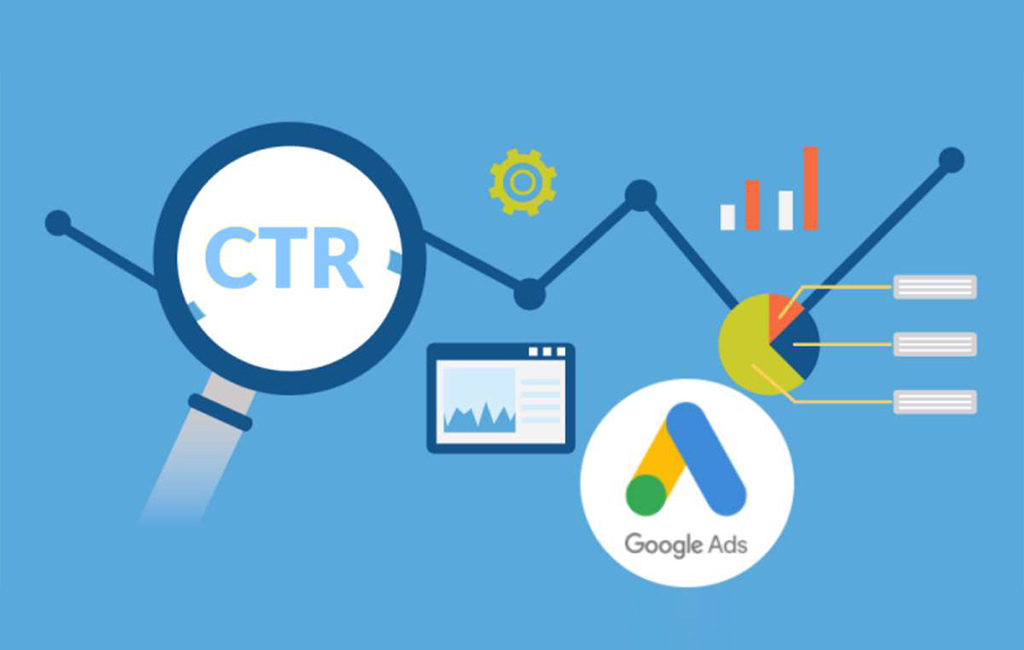
Click-through Rates (CTR)
Your CTR in SEO is the result of how compelling your meta titles and descriptions are. A higher CTR in SEO indicates that your snippet caught the attention of the wandering internet traveler. The better the match, the higher the click-through rate.
PPC, on the flip side, is the bold headline that demands attention. Your ad copy and presentation directly impact your CTR. However, a high CTR in PPC doesn’t guarantee success; it’s the conversion rate that truly seals the deal.
Tracking and Analytics
Tracking and analytics in SEO involve understanding user journeys, bounce rates, and the pages that keep them hooked. It’s like solving a mystery, analyzing the data to refine your strategy and create an experience users will love.
On the other hand, tracking and analytics in PPC involve examining the return on investment. It’s like balancing the books – ensuring that your ad spend aligns with the revenue generated. Smart analytics in PPC lead to strategic bidding and a healthier bottom line.
SEO Vs PPC: What Option Should You Consider?
Well, it depends on your goals, budget, and timeline.
Didn’t understand? Here’s a scoop into the decision-making process and explore which option might be the ideal one for you:
SEO: The Patient Gardener
SEO takes time, care, and a sprinkle of magic to cultivate a strong online presence. If you are in it for the long haul, building trust with search engines and your audience, then SEO is your culinary masterpiece.
When to Choose SEO?
- If you are aiming for organic growth and want to establish long-term credibility.
- When you are passionate about crafting valuable, evergreen content that stands the test of time.
- If you have got the patience of a zen master and can wait for the seeds you have planted to bloom into a flourishing garden.
PPC: The Instant Flavor Burst
If you need immediate results, want to target specific audiences, and are willing to pay to play, PPC is your digital sugar rush.
When to Choose PPC?
- If you have a time-sensitive promotion or event and need instant visibility.
- When you want precise control over who sees your content with targeted keyword bidding.
- If you are ready for a rapid, paid journey to the top of the search engine results.
The Perfect Blend: A Dash of Both
Guess what? You don’t have to choose just one flavor!
Many successful marketers whip up a concoction of SEO and PPC, creating a symphony of flavors that caters to both immediate and long-term goals.
When to Choose Both?
- If you want to maximize your online presence by covering both organic and paid search channels.
- When you are looking for data insights from both SEO analytics and PPC performance to refine your strategy.
- If you believe in the power of alliance, where the strengths of both strategies complement each other.
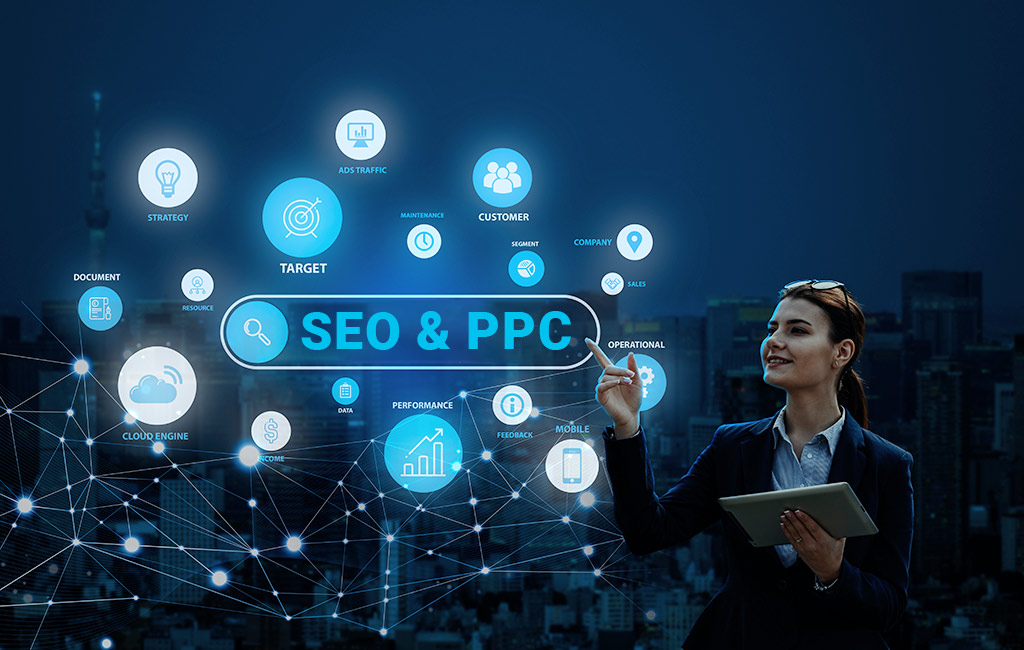
Concluding Words
As we wrap up our exploration on how is ranking different when comparing PPC vs SEO, make sure to reflect on your own digital strategy.
Are you leaning toward the instant results of PPC, or are you playing the long game with SEO? Perhaps a strategic blend of both is the sweet spot for your brand. The ultimate power is in your hands. Hence, choose wisely!
FAQ
Choosing between SEO and PPC is like picking your favorite dessert – both have their challenges. SEO requires patience and strategy, while PPC demands a quick wit in bidding. It’s not about harder, but what flavor suits your taste.
It’s like comparing apples and oranges – both are delicious! SEO is a long-term investment, growing over time. PPC offers instant gratification but at a cost. Your investment choice depends on the flavor of results you crave.
It’s a budget dance! SEO is like a fine wine, aging gracefully with consistent efforts. PPC is a vibrant cocktail – instant but pricier per sip. Hence, make sure to balance your preferences, goals, and wallet to craft the perfect blend.

